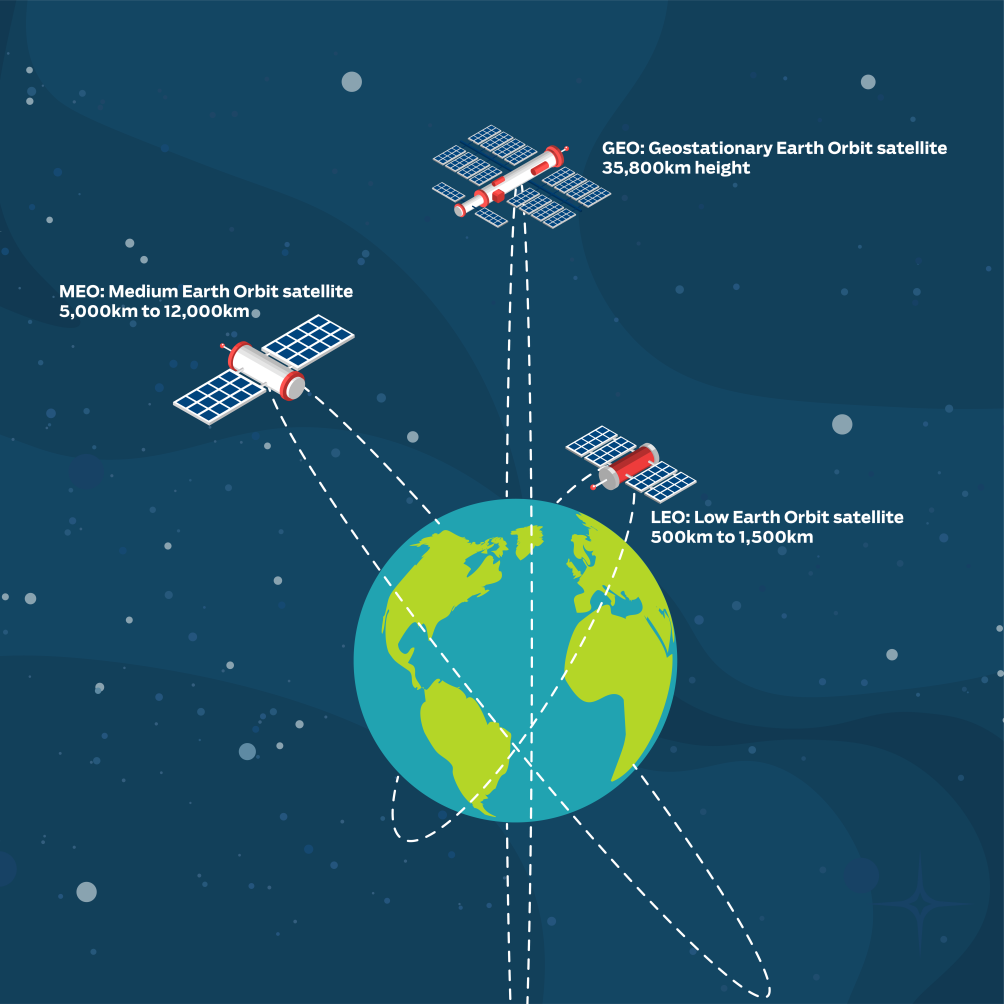Connection anywhere, anytime.
Are you tired of paying too much for Satellite TV, Cable TV, Internet & home phone services? Looking to switch to save some MONEY or just looking for new service? Call us today & stop wasting money!

Best Satellite TV Providers: DISH or DIRECTV—Who Wins?
DISH is the best satellite TV provider based on its affordability, transparency, and family-friendly content—but sports fans may prefer DIRECTV
DISH Network is our Best of the Best satellite TV provider due to its high channel count, industry-leading DVR, and two-year price guarantee. DISH is also our best TV provider for families, with tons of kids’ channels and excellent parental controls. So we highly recommend DISH for almost everyone.
How does Satellite work?
Satellite internet service technology that has existed for decades. Instead of using cable technology, such as fiber optics to transmit internet data, a satellite system uses radio signals through the vacuum of space. Ground stations broadcast signals to satellites in orbits, which in turn relay the data back to the Internet users on Earth. Each satellite in the Satellite constellation weighs 573 pounds and has a flat body. One SpaceX Falcon 9 rocket can fit up to 60 satellites.
The goal of Satellite is to create a low latency network in space that facilitates edge computing on Earth. The challenge of creating a global network in outer space isn’t a small one, especially because low latency is an important demand. SpaceX has proposed a constellation of almost 42,000 tablet-size satellites circling the globe in low orbit to meet this demand. The CubeSats — miniature satellites commonly used in LEO — create tight network coverage, and their low Earth orbit produces low latency.
How fast internet speeds?
Satellite offers unlimited high-speed data through an array of small satellites that deliver up to 150 Megabits per second (Mbps) of internet speed. SpaceX plans to double this rate in the coming months.
According to a recent Speedtest by Ookla, Satellite recorded its fastest median download speed in the first quarter of 2022 at 160 Mbps in Lithuania. Satellite also clocked in at 91 Mbps in the U.S., 97 Mbps. Satellite in Mexico was the fastest satellite internet in North America, with a median download speed of 105.91 Mbps. The Speedtest further revealed that upload speeds have seen a downward curve of at least 33% in the U.S. — from 16.29 Mbps in the first quarter of 2021 to 9.33 Mbps in the second quarter of 2022.

Satellite internet provider comparison
Satellite internet technology uses satellites in space to deliver an internet connection to your home. It is the best option for remote or rural areas where fiber, cable or cell tower infrastructure isn’t available, but satellite speeds are generally slower than other internet types.
When comparing Viasat, Hughesnet and Internet to one another, we considered cost, speeds, latency, contracts and data caps. Hughesnet and Viasat are available to 100% of the U.S., whereas Internet is about 99% available. If you’re looking for cheap satellite internet, this might be difficult as plans start at around $50.00/mo. Internet is the most expensive of the three satellite providers but also the fastest.
Is Satellite faster than 5G?
on the quality of each connection, your location, and what you mean by “faster” (download speed, upload speed, or latency). Let’s break it down:
| Feature | (Satellite Internet) | 5G (Mobile Network) |
|---|
| Download Speed | 50–250 Mbps (can exceed 300+) | 100–1,000+ Mbps (theoretical up to 10 Gbps) |
| Upload Speed | 10–40 Mbps | 10–100 Mbps |
| Latency (Ping) | 20–50 ms (low-earth orbit) | 5–30 ms (best cases) |
| Coverage | Global (needs clear sky) | Limited to network availability |
| Stability | Weather-sensitive | Tower-dependent; good in cities |
| Portability | Yes (Roam plans available) | Yes (with SIM/Hotspot) |
| Congestion Sensitivity | Moderate (shared bandwidth) | High (especially in cities during peak hours) |
Where Satellite Might Be Faster
In rural or remote areas where 5G signals are weak or unavailable
In places where 5G is capped or throttled (data limits, deprioritization)
For consistent speeds over time (Satellite isn’t tied to tower congestion)
For upload-heavy applications (like video streaming or cloud backups), Satellite might outperform congested 5G networks
Where 5G Might Be Faster
In urban areas with strong mmWave or mid-band 5G coverage
For lower latency gaming or real-time applications (under ideal conditions)
When using fiber-backed 5G networks with minimal obstructions
Real-World Example
| Location | Satellite Speed | 5G Speed |
|---|---|---|
| Remote village | 80 Mbps ↓ / 25 Mbps ↑ | 5 Mbps ↓ / 1 Mbps ↑ (poor signal) |
| City center | 150 Mbps ↓ / 20 Mbps ↑ | 500 Mbps ↓ / 80 Mbps ↑ (strong 5G) |
So in rural setups, Internet wins hands down. In city centers with good towers, 5G is often faster — but may be less consistent.
Want the Best of Both?
Some businesses and power users combine Satellite + 5G using dual-WAN routers or bonding tech to get ultra-reliable, high-speed internet anywhere — called a hybrid setup.
Verdict:
Satellite is often faster in rural/remote areas with poor mobile coverage.
5G is usually faster in urban areas, assuming good signal and low congestion.
If you care about stability, coverage, and upload speeds, Satellite can be a better bet — especially outside cities.
